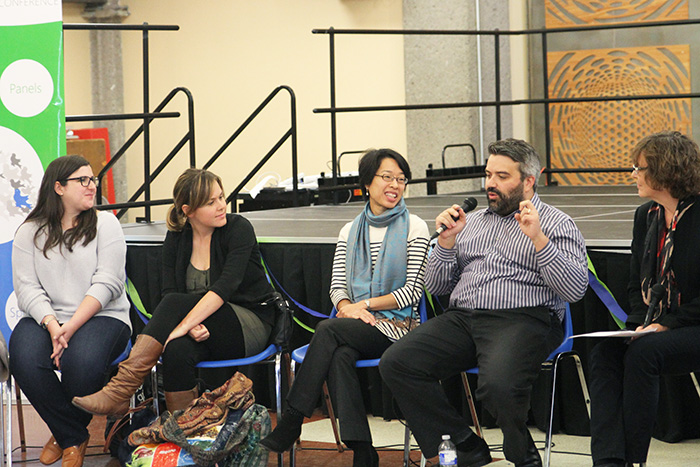From September onwards, McGill Mental Health Services and Counselling Services will no longer operate as two separate services. The change is intended to shorten wait times and increase the accessibility of mental health services. Students can now seek help at the Counselling Services Office on the fourth floor of the Brown Student Services Building, as well as the Mental Health Services office on the fifth floor. New patients at both points of entry will go through the same evaluation process, and will be directed to the appropriate resources based on an initial check-up.
Interim Executive Director of Student Services Robyn Wiltshire stressed the amount of feedback received in the three-year process to implement this new plan. During this period, opinions were collected in the form of student satisfaction surveys, cyclical reviews, and consultations with professionals.
“Students have expressed their concerns and their dissatisfaction with the services that we were delivering,” Wiltshire said.
Students will no longer have to decide between seeking help at counselling services, or at mental health services. A single booking process has been implemented, which allows students to see an intake clinician who will help guide them to appropriate services, including those that are peer-led.
“Basically students were confused about where they should go to get service […],” Wiltshire said. “We were requiring students basically to self-diagnose before they chose which door to go to and that was really not appropriate, and not something that a student should be expected to do.”
According to Wiltshire, diversifying the approaches to support and allowing clinicians more flexibility will enable students to access services in a more timely manner.
“We also had long wait times in between clinical appointments,” Wiltshire said. “Because all of our clinicians were operating on one hour clinical cycles […] the clinical appointment was for a full hour, the check-ins don’t need to be for a full hour [….] The idea is […] the clinicians will be able to be more proactive with the students they are following,” Wiltshire said.
The official announcement was made in a panel discussion titled, “A New Frame of Mind,” an event that was part of the Students in Mind (SiM) Conference. During the discussion, one student voiced a concern that the new model deprived students of the autonomy to choose which service to seek. over the new model’s lack of protection for student choice.
Dr. Nancy Low, clinical director at McGill Mental Health Services, responded to the student’s concern.
“Say the student already has a diagnosed mental health disorder and they're on medication, they will be put straight to a psychiatrist,” Low said.
Concern was also raised over the lack of communication between clinicians in different services during the feedback collected before the merge.
“I guess one of the major things from a student perspective is just [not] having to tell the story so many times,” Dr. Low said.
Dalya Kablawi, a U1 anatomy and cell biology student and student volunteer at the Peer Support Centre, believes the student body could be better informed about the decision.
“I feel like the student body, a good portion of them, don’t know they’ve been merged yet,” Kablawi said.
However, Kablawi believes it to be a positive change overall.
“In terms of accessibility, I think it’s been improved a lot,” Kablawi said.
Nevertheless, the evaluation of the new service model will be an ongoing process for both students and faculty.
“It sounds great on paper,” Kablawi said. “I don’t know what kind of hurdles they’ll face when they get started in terms of practicality, in terms of logistical issues.”
According to Wiltshire, the new model will revolve around a continuous feedback loop for improvement.
“I’m not saying that we’re done,” Wiltshire said. “We made a change, we flipped a switch and that’s done. This is a process and it’s a process that requires continuous improvement,” Wiltshire said.









